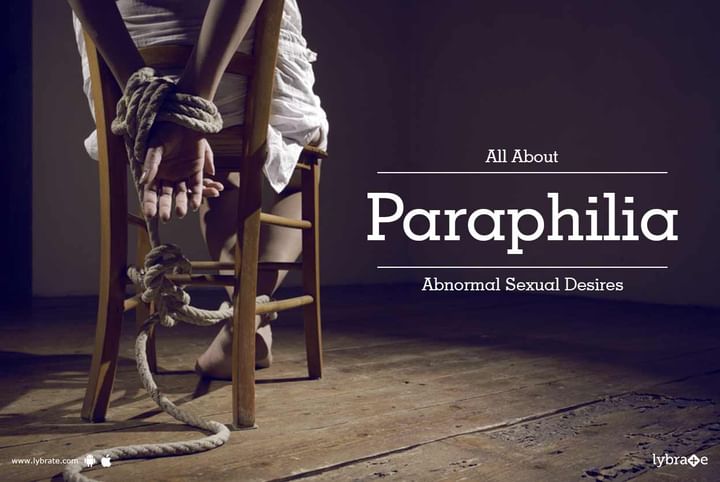All About Paraphilia - Abnormal Sexual Desires
Paraphilia is a condition involving abnormal sexual desires or being aroused only by specific activities that deviate from the average interests. The arousal of people with paraphilia are bound by fantasizing about certain situations or activities that not necessarily 'normal'.
There are hundreds of recognized sexual paraphilia. A few of the most commonly known examples include:
-
Necrophilia: Involves being sexually aroused by corpses
-
Paedophilia: It is being aroused by prepubescent children
-
Narratophilia: Being aroused by obscene words.
-
Metrophilia: Being aroused by poetry
-
Masochism: Being aroused by suffering, being bound or beaten
-
Sadism: Arousal that comes with inflicting pain on others
-
Anthropophagolagnia: Involves raping and then eating the corpse of the victim
-
Coprophilia: Arousal involving faeces
-
Pictophilia: Arousal involving pornography or erotic pictures
-
Zoophilia: Involving animals
While some of these fantasies are harmless indulgences, some might be a serious threat to the person and the society. Anthropophagolagnia, for example, is one of the most dangerous examples of paraphilia. Ted Bundy, one of the most talked about cases in criminal psychology, was known to practice Anthropophagolagnia.
Some cases of paraphilia, when done with a consenting partner and indulged in discreetly, need not be especially a threat to others, for example, Metrophilia and Narratophilia. However, the likes of paedophilia, necrophilia and paraphilia involving rape fantasies are pathological in nature and can be considered abnormal and outright dangerous for the overall health and sanctity of the society.
Symptoms of paraphilia include the severe obsession with a particular fantasy or object to the point the individual is unable to attain sexual satisfaction without it.
The development of paraphilia, from a psychoanalytic perspective, is attributed to the arousal caused by a particular behaviour in childhood. From a behaviouristic perspective, sexual arousal may be attached to a particular object if both the instances have repeatedly occurred together around the concerned individual, thus conditioning them. An individual who is the victim or observer of inappropriate sexual acts may develop a paraphilia concerning that very act.
Treatment
For treatment of sexual paraphilia, drugs that regulate testosterone levels and arousal levels have been used to reduce the sexual arousal while the therapy continues. Antidepressants have been used to reduce sex drive but they do little about the fantasies. Psychoanalytic approach and hypnosis have been used in therapy. In some cases, Cognitive Behavioral Therapy (a therapy which focuses on conversations regarding how one’s thoughts and beliefs can affect his/her actions) and systematic desensitization (systematically and gradually letting go of such odd fantasies) have been used to cause a reduction in the conditioning of the fantasy and sexual arousal. Prolonged therapy and medications are used largely for the treatment of paraphilia. For the ones that are a threat to the society, quarantine (separating the extreme paraphilic cases from the rest of the society) is suggested in some countries.



+1.svg)
